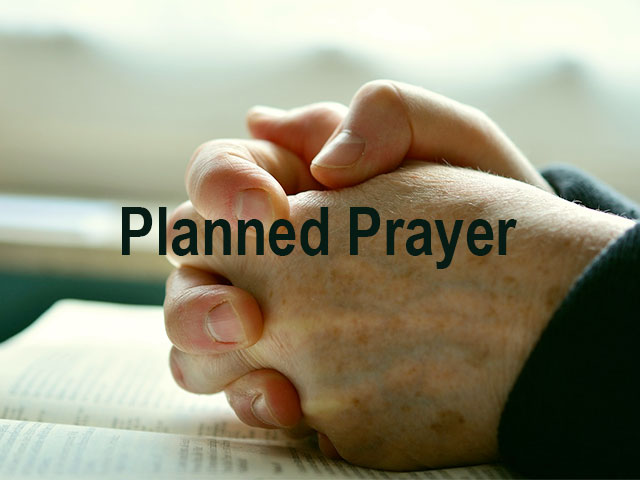Planned Prayer
My mother recently posed an encouraging, convicting, and thought-provoking question: “Should I pray every day for everything on my prayer list, or is there a better way?” My mom acknowledged that with her current approach, she assumed both too much and too little about her requests of the Lord. On the one hand, with a knowing smile, she worried that if she missed praying for blessings for her marriage, her pastor, or a grandchild, the Lord might overlook these things and avoidable trouble might descend on precious heads. On the other hand, she acknowledged that her daily petitions were becoming routine.
The encounter confirmed that I am one who can still be learning about prayer from my mother. But the question is worth pondering. God tells us to “pray without ceasing” (1 Thess. 5:17). But does this mean that we should exhaustively recount every petition and heart cry every day to the Lord?
Thankfully, God knows what we need before we ask Him for anything (Matt. 6:8). Indeed, He knows all things exhaustively, eternally, and unchangeably, and He will infallibly accomplish His every purpose. We are not to think that our prayers obligate or direct Him in any way, for He knows what He will do (see John 6:6). At the same time, God commands and welcomes our prayers of many various sorts—adoration (Ps. 8:1), thanksgiving (107:1), confession (1 John 1:9), petition (Phil. 4:6), and more. Mysteriously, He has even woven our petitions into His all-determining decree, promising to answer prayers offered in the name of Christ, with faith, according to His will. So He calls us, and we are encouraged, to seek His face with holy zeal and fervent love, to present all our requests to Him with thanksgiving (v. 6), and to intercede for all the saints (Eph. 6:18) and all kinds of people (1 Tim. 2:1). But Scripture also teaches that prayer, especially in public, is to be thoughtful, orderly, and understandable (1 Cor. 11:4–5; 14:15, 40).
If these biblical guidelines are helpful cues, we could join my mother in considering how to plan our prayers, especially our petitions to God. It may be useful to pray for one’s fellow church members on Mondays (having just worshiped with them on Sunday) and for broader missions and ministry works on Tuesdays. Then one might pray for personal needs on Wednesdays (as the burdens of the week accumulate), for extended family members and friends on Thursdays (having prayed for more love to them the day before). We could pray for our pastors on Fridays (as they prepare to preach and teach on Sunday). On Saturdays, we could pray for the wider culture, government officials, and other pressing needs in anticipation of giving it all to the Lord with our church family on Sunday morning. Whatever the plan, as you ascend and descend the mountain of prayer, may the aroma of Christ, in His perpetual intercession for you (Heb. 7:25), attend your way.
Dr. R. Carlton Wynne is associate pastor of Westminster Presbyterian Church in Atlanta and adjunct professor of systematic theology at Reformed Theological Seminary in Atlanta.


Recent Comments